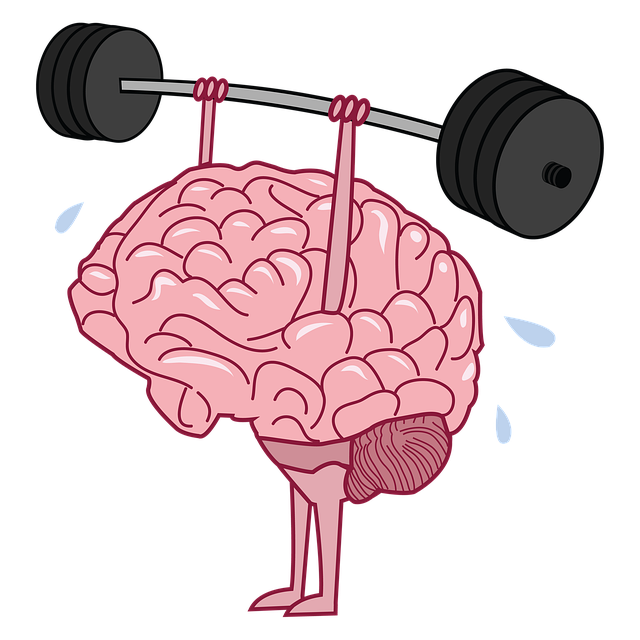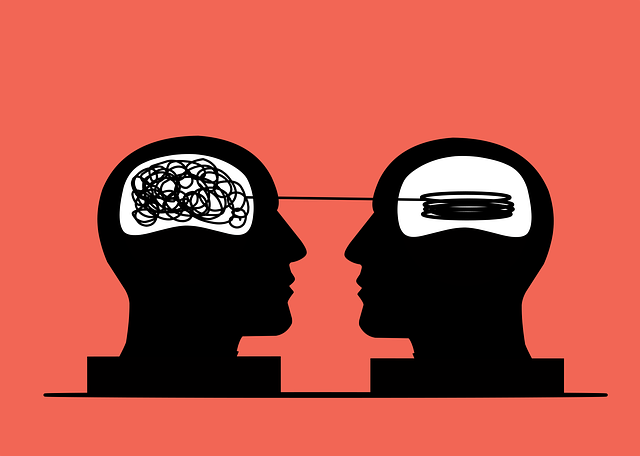Broomfield Divorce Therapy emphasizes that effective communication and interpersonal skills are crucial for addressing mental health conditions. Their specialized social skills training programs empower individuals by teaching them to manage emotions, build healthy relationships, and enhance self-esteem in social settings. Through tailored coping strategies, evidence-based practices, and community outreach, they help clients overcome challenges related to anxiety, depression, and stigma. By focusing on mental health policy advocacy and education, Broomfield Divorce Therapy promotes a holistic approach to well-being, reducing isolation and improving the overall emotional state of individuals with mental health issues.
Social skills training is a powerful tool for improving mental health outcomes, especially for individuals navigating challenging conditions. This article delves into the intricate relationship between social abilities and mental well-being, highlighting specific obstacles faced by those with mental health issues. We explore the therapeutic benefits of Broomfield Divorce Therapy, offering practical strategies to enhance communication. Furthermore, we discuss how building resilience through social skills training can foster a more supportive and fulfilling life for individuals managing their mental health.
- Understanding the Link Between Social Skills and Mental Health
- Identifying Challenges in Social Interactions for Individuals with Mental Health Conditions
- The Role of Broomfield Divorce Therapy in Enhancing Social Skills
- Practical Strategies for Developing Effective Social Communication
- Building Resilience Through Social Skills Training
Understanding the Link Between Social Skills and Mental Health

Social skills training is a powerful tool in addressing mental health conditions, and its impact on overall wellness cannot be overstated. At Broomfield Divorce Therapy, we recognize that effective communication and interpersonal interactions play a pivotal role in managing and improving mental health. The link between social skills and mental wellness is intricate; individuals struggling with mental health issues often face challenges in connecting with others, which can exacerbate their symptoms.
Developing robust social skills becomes a crucial aspect of recovery and resilience. Mental Wellness Coaching Programs offer guidance on enhancing communication, building healthy relationships, and managing emotions in social settings. These programs, coupled with the right support, empower individuals to navigate social interactions confidently, fostering a sense of belonging and reducing feelings of isolation. Additionally, Mental Wellness Journaling Exercises can help individuals reflect on their experiences and track progress in developing and maintaining these essential life skills.
Identifying Challenges in Social Interactions for Individuals with Mental Health Conditions

Individuals with mental health conditions often face unique challenges when it comes to social interactions. These challenges can stem from a variety of factors including anxiety, depression, or other symptoms that impact communication and relationship-building abilities. For example, someone struggling with social anxiety might find even simple conversations overwhelming, while individuals dealing with bipolar disorder could experience significant mood shifts that affect their ability to maintain consistent social connections.
In the context of Broomfield Divorce Therapy, understanding these challenges is crucial for developing effective coping skills. The process involves not just treating the underlying mental health condition but also equipping individuals with tools to navigate social situations more comfortably. This may include strategies for self-esteem improvement and techniques to enhance assertiveness. Additionally, community outreach program implementation can play a vital role in fostering supportive environments where individuals can practice new social skills in a safe and nurturing setting.
The Role of Broomfield Divorce Therapy in Enhancing Social Skills

Broomfield Divorce Therapy offers a unique approach to enhancing social skills among individuals dealing with mental health conditions. This specialized therapy recognizes that effective communication and interpersonal interactions are essential components of recovery, especially when navigating complex emotions related to divorce or separation. By incorporating evidence-based strategies, the therapy focuses on building resilience and fostering healthier relationships, thereby reducing the impact of mental illness stigma.
Through a comprehensive Mental Health Policy Analysis and Advocacy lens, Broomfield Divorce Therapy aims to empower clients with the necessary tools to manage social interactions successfully. The program addresses common challenges faced by individuals struggling with depression prevention, providing them with strategies to initiate conversations, maintain eye contact, and interpret social cues accurately. This holistic approach not only enhances their overall well-being but also encourages active participation in mental Illness Stigma Reduction Efforts, promoting a sense of belonging and understanding within their communities.
Practical Strategies for Developing Effective Social Communication

Developing effective social communication skills is a crucial aspect of managing mental health conditions. At Broomfield Divorce Therapy, we emphasize practical strategies that empower individuals to navigate social interactions with confidence and ease. Our approach integrates Mind Over Matter principles, focusing on self-awareness, emotional regulation, and assertiveness training. These techniques help clients build resilient coping mechanisms, fostering better connections with peers and loved ones.
Mental health education programs design plays a pivotal role in equipping individuals with the tools to combat stigma and promote understanding. Through interactive workshops and group discussions, we encourage open conversations about mental illness. This reduces the barrier of entry for seeking support and encourages early intervention. By combining these efforts with tailored strategies, individuals can enhance their social communication, leading to improved overall well-being.
Building Resilience Through Social Skills Training

Social Skills Training plays a pivotal role in building resilience for individuals managing mental health conditions. By participating in such programs, clients develop essential coping mechanisms and learn to navigate social environments with newfound confidence. These skills are crucial for maintaining emotional well-being, especially during challenging times. At Broomfield Divorce Therapy, our approach focuses on fostering empathy and enhancing communication strategies tailored to individual needs.
Through interactive Emotional Well-being Promotion Techniques, participants gain a deeper understanding of their emotions and those around them. This promotes healthier relationships and reduces social isolation, which is often a contributing factor in mental health struggles. Additionally, our Stress Management Workshops Organization provides practical tools for managing anxiety and stress, allowing individuals to actively participate in their own healing process. These techniques, when combined with Empathy Building Strategies, create a supportive network that encourages personal growth and enhances overall resilience.
Social skills training, such as that offered through Broomfield Divorce Therapy, plays a pivotal role in enhancing the lives of individuals with mental health conditions. By understanding the interconnectedness between social skills and mental well-being, we can address specific challenges faced in social interactions. Practical strategies and resilience-building techniques equip individuals to navigate social situations more effectively, ultimately fostering better mental health outcomes.












